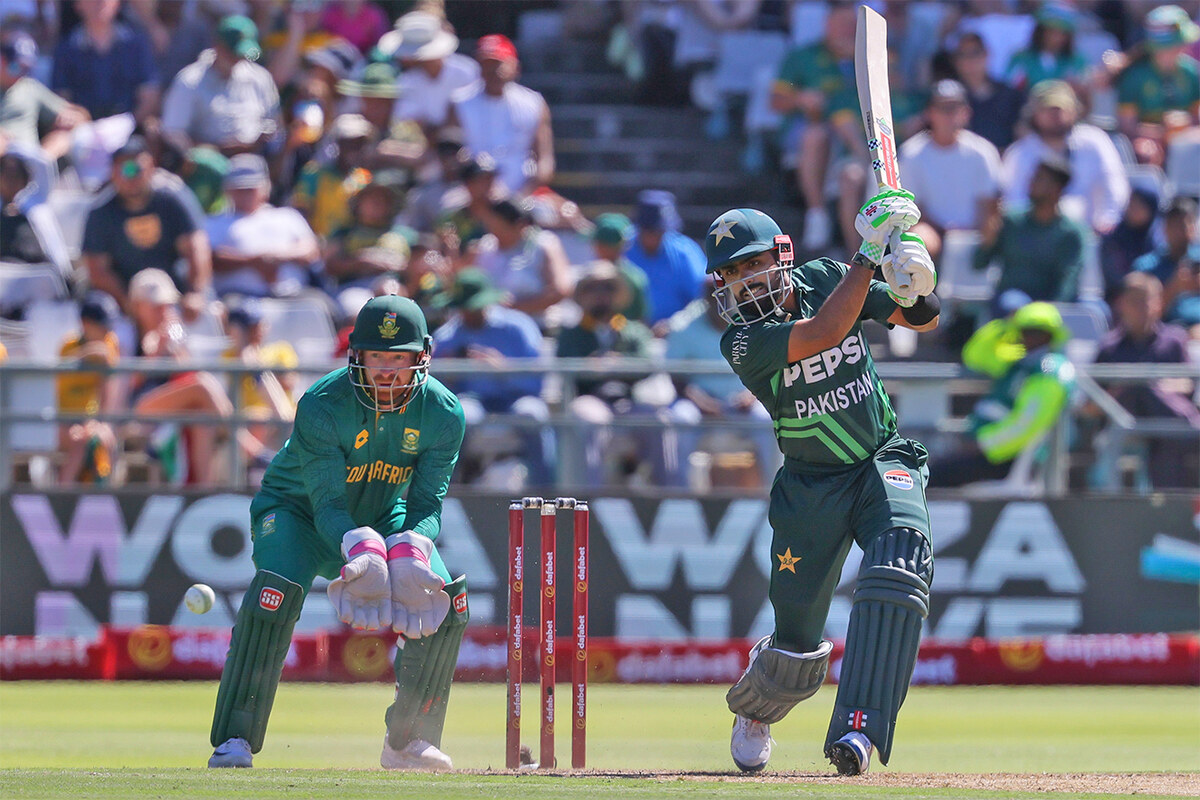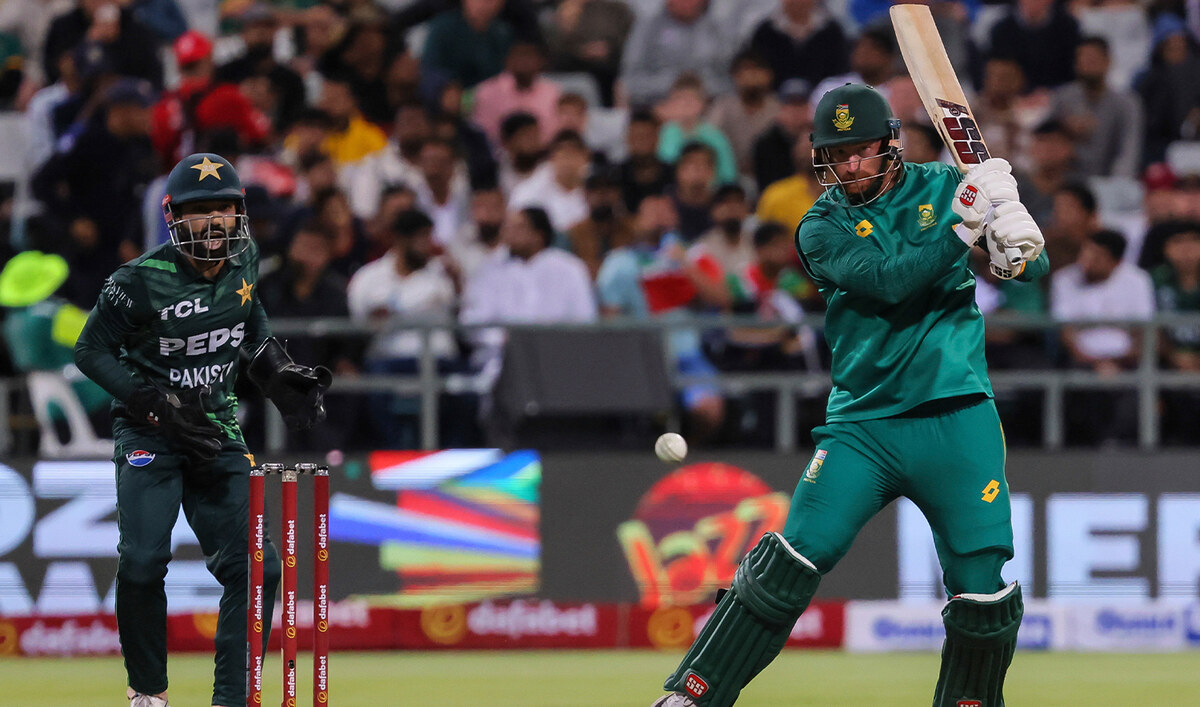ISLAMABAD: As Maryam Nawaz Sharif, daughter of former prime minister Nawaz Sharif, made history this week by becoming the country’s first woman chief minister, political rivals decried nepotism while analysts said she had “her work cut out for her” governing the country’s most politically important province of Punjab.
Maryam secured 220 votes in Monday’s election for the chief minister of Punjab, which accounts for 53 percent of Pakistan’s 241 million population and contributes 60 percent of its $350 billion GDP. Her opponent Rana Aftab Ahmad Khan could not secure a single vote as the opposition Sunni Ittehad Council party backed by jailed former prime minister Imran Khan boycotted the proceedings, saying the Feb. 8 general election was rigged.
Elections earlier this month were the first time Maryam contested polls, representing her father’s Pakistan Muslim League-Nawaz (PML-N). This is also the first time she will hold an elected public office, and that too in Punjab, the heartland of Pakistan military, political and industrial elite, a difficult terrain to manage even for the most experienced politicians.
But Punjab is also the home province of the Sharif family, and Maryam is expected to have guidance from veterans in her family, not least her father, a three time former prime minister, and her uncle Shehbaz Sharif who has been Punjab CM multiple times in the past and is set to become prime minister for a second time this week. Her cousin Hamza Shehbaz, the younger Sharif’s son, has also served as CM of the province.
Aftab, her opponent, said Maryam’s appointment was “yet another case of nepotism as her family is known for picking relatives and friends to top positions whenever it comes into power.”
But Maryam thanked God during the appointment ceremony and promised she would equally serve those who voted for her and those who didn’t.
“The doors of my heart and office will remain open for the opposition as well,” she said.
Several commentators welcomed the appointment of a woman as CM, a significant milestone over seven decades after Pakistan’s creation.
“We have the first woman chief minister of Punjab, which in itself is an achievement for someone who comes from a conservative family background and a male-dominated and traditional political party,” commentator Mehmal Sarfraz told Arab News.
“There’s no doubt that being Nawaz Sharif’s daughter helped her but it can only help her so much. Now she has to prove her leadership skills, and carve out her own legacy.”
POLITICAL CAREER
Prior to entering politics, Maryam was involved with the Sharif family’s philanthropic organizations and served as the chairperson of the Sharif Trust, Sharif Medical City, and Sharif Education Institutes. She formally joined politics in 2012 when she was put in charge of the PML-N’s election campaign ahead of 2013 general elections, which the party won, propelling her father to the prime minister’s office for the third time.
After the elections, she was appointed the Chairperson of the Prime Minister’s Youth Programme, a position from which she resigned in 2014 after her appointment was criticized by political rival Imran Khan over nepotism and her university degree was challenged in the Lahore High Court.
She became more politically active in 2017 after her father was disqualified from the PM’s office and convicted by the Supreme Court of Pakistan in relation to corruption revelations in the Panama Papers. She campaigned for her mother, Kulsoom Nawaz, during by-elections for Sharif’s vacant seat in the NA-120 constituency in Lahore.
Maryam was herself convicted by an anti-graft court in 2018 and got seven years in jail in a corruption abetment case involving the purchase of high-end apartments in London. Her father was also sentenced to 10 years in prison in the case for not being able to disclose a known source of income for buying the properties. She was also disqualified from contesting in 2018 elections as convicted felons cannot run for office under Pakistani law.
Maryam was acquitted in the case in September 2022, months after Imran Khan was ousted from the PM’s office in a parliamentary vote of no confidence and her uncle Shehbaz Sharif became premier.
Maryam became increasingly involved in politics during her father’s four-year self-imposed exile in the United Kingdom and in 2019 was appointed vice president of the PML-N, leading significant anti-government rallies throughout the country and fiercely denouncing then-PM Khan, his PTI party and the military and judiciary for colluding to oust her father from the PM’s office.
On 3 January 2023, Maryam was appointed senior vice president of the PML-N, making her one of the party’s most senior leaders. She ran for two seats in the Feb. 8 general elections, for the National Assembly seat from NA-119 Lahore-III and for a seat of the Provincial Assembly of Punjab from PP-159 Lahore-XV. She won both seats and was nominated by her party as the candidate for Punjab CM.
“She has been through the grind and now coming to governance I think that she has come in prepared, which is evident from her speech,” journalist and talk show host Munizae Jahangir said.
“She has already had her meetings with the bureaucrats and she has a work plan, a blueprint of a work plan of what she is going to do in the five years which she unveiled today.”
Among notable promises in her speech, Maryam vowed to transform Punjab into an economic hub, work on youth upliftment, launch free ambulances and medicine delivery, ensure school transport and make women’s safety, education and employment a priority. She said women’s harassment was a “red line” and announced that a “special package” was in the works for the transgender community.
“Now whether she walks the talk is something that we will have to wait and see but by and large her speech has been extremely good,” Jahangir said. “She has touched upon all the issues that plague not just Punjab but also Pakistan and seems to have her work cut out for her.”
Sarfraz agreed.
“Her roadmap seems like an ambitious plan so let’s see how she moves forward with it but it was good to see for a change that there was talk of reconciliation and not revenge, which has become a norm in our politics,” the commentator said.
“The best thing about her speech was that she made it a point to highlight that being a woman was a strength and not a weakness. She talked about her experience as a mother, daughter, working woman and how harassment is a red line for her. This needed to be said.”
Dismissing Maryam’s lack of parliamentary experience, Sarfraz said a lot of the criticism against the politician was gendered:
“She gets more hate because she is a woman who has an aggressive style of politics. We don’t talk much about this angle of how our sexist and misogynist society hates an ambitious, opinionated and strong woman.”
DYNASTIC POLITICS
Maryam’s appointment was largely expected following the Feb. 8 parliamentary elections in which her father’s PML-N emerged as the largest party in the National Assembly, or lower house of the parliament, and in the Punjab Assembly.
The PML-N, which was initially trailing candidates representing Khan’s supporters — the former cricket player turned politician was barred from running — emerged last Friday as the largest single winner in the election after receiving 24 additional seats — 20 from out of the 60 seats reserved for women, as well as four seats out of 10 reserved for minorities. Nine independent members have also joined the PML-N.
The party is now heading into a coalition with the Pakistan People’s Party (PPP), and Shehbaz Sharif, the younger brother of Nawaz, on a firm path to becoming the next prime minister, his second term in office. Khan’s party has rejected the election results, alleging widespread rigging.
The Sharifs are one of the top two families that have dominated Pakistani politics for decades, the second being the Bhuttos of Sindh.
“I have never thought that dynastic politics is a problem because I believe that whoever the voters want to vote for they should be allowed to, you can’t ban people just because they are somebody’s children or somebody’s father,” Jahangir said.
“In this case it was very clear that she was a contender for the CM slot and I don’t think that she is that inexperienced … she had considerable experience in politics in opposition really and I think that opposition is when you really do have the tough time of doing politics in a place like Pakistan.”
But political analyst Dr. Huma Baqai said Maryam’s biggest challenge would be “credibility” and proving herself to the public.
“Political turmoil is not over in Pakistan. The fact that election results are not accepted on the ground by a huge section of the population will remain an issue [for Maryam]. There will be issues of credibility,” she said, describing the new CM’s roadmap as “the absolute pie in the sky promises of a person who does not have the experience.”
Dr. Hassan Askari, a longtime observer of Punjab politics, agreed that Maryam faced many challenges ahead.
“She has presented a massive, a big-scale and very ambitious agenda,” the professor said. “That requires a lot of resources, virtually every aspect of administration has been covered. So, how do you mobilize resources for such an ambitious agenda?”
Jahangir, however, believed Maryam’s biggest challenge would be working with the all-powerful military, which has directly ruled Pakistan for almost half its history and is seen as the invisible guiding hand of politics even when not in power.
In the run-up to elections too, widespread concerns were raised by independent analysts, activists and politicians of the military’s growing political power and its engineering of the pre-polling phase to keep Khan out of politics. The military denies it interferes in politics.
“I think the challenges for any politician in Pakistan is the military,” Jahangir said, “whether they will allow the politicians to run the province the way they want, whether they will be interfering in the running of the province. I think that is the real question.”




















